In 2025, global uncertainties and volatilities are having a major effect on leadership outlook.
That is the headline news according to brand-new research commissioned by The Institute of Leadership. It shows that the five areas of greatest concern for leaders today, are:
- Leading in a time of relentless change
- Addressing recruitment, retention, and evolving employee expectations
- Bridging the ‘confidence gap’ in new technology
- Finding space for self-reflection, empathy and authenticity
- Developing the best leadership capabilities for the future.
When it comes to the ceaseless pace of change, the report shows that more than three out of four leaders (77%) expect levels of change to increase over the year ahead.
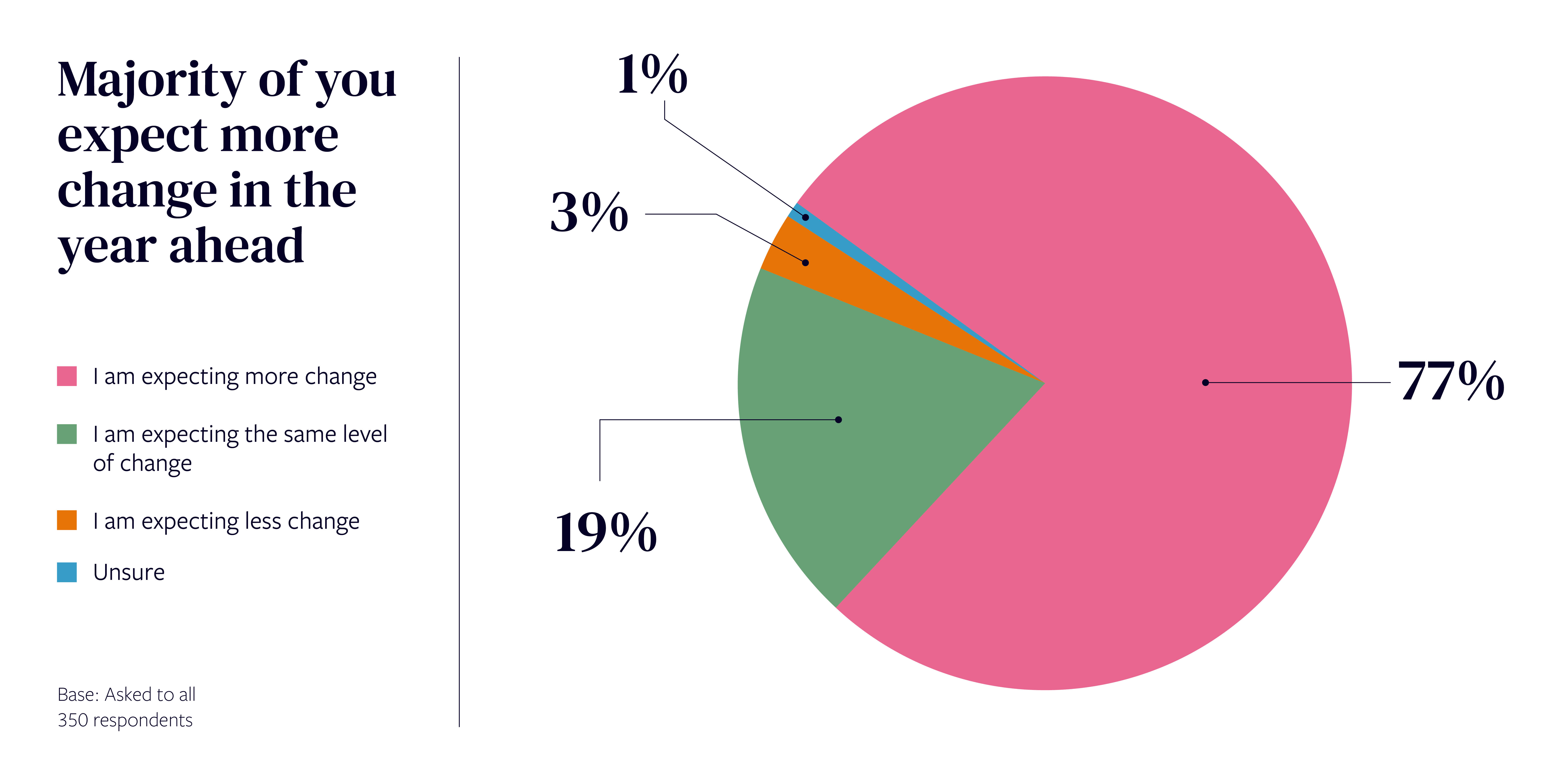
Of course – as the old maxim goes – in life, change is the only constant. It’s only when we dive a little more into the detail of the report’s findings that we see why, where, and how leaders are expecting change will affect their businesses.
The report reveals that the leaders surveyed cite geopolitical factors (64%) and technological advances (63%) as two key drivers of the changes to come. However, it is economic factors (85%) that people reported as being the biggest driver of change.
Change, the findings show, is not an abstract concept. It has real effects on business and people’s careers.
Building teams, nurturing talent
Global uncertainty is having a direct impact within organisations, the report finds. For example, half of respondents (50%) said that recruiting the right people in a fast-changing world was a challenge, with an almost equal number (49%) reporting that workforce engagement is an issue for them.
In fact, only 5% claimed they faced no challenges in managing their team, highlighting the complex nature of talent acquisition and professional development that leaders face today.
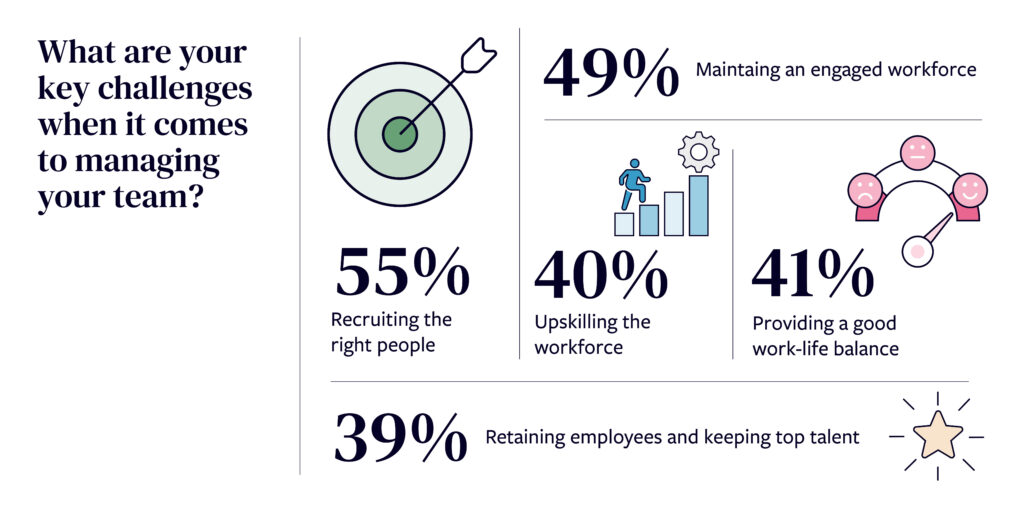
In a comment, one respondent said what was needed to build strong teams and nurture talent was a wholesale “redefining [of] the employer value proposition – highlighting purpose, growth opportunities and well-being initiatives.”
Managing the impact of new technology
We are now at a stage in the development of AI where it is no longer a news headline about something happening elsewhere, or something to do with the future. Each of us already encounters it every day, whether that be through Google search, writing assistance through Chat GPT, online meeting recording transcripts, or a more specialised application of an all-encompassing and seemingly limitless technology.
But are we prepared to leverage the capabilities of new technologies, including AI? Our research found large variations in confidence in how ready leaders are to utilise them. While more than half of respondents (55%) said they were ‘somewhat confident’ in adopting the latest tech, only 20% said they were very confident.
Men in senior roles were the most confident in their abilities in relation to technology. Women, and those in management rather than C-suite roles, less so. Why could this be? Perhaps because employees outside of the top jobs remain concerned that the new tech will replace their roles?
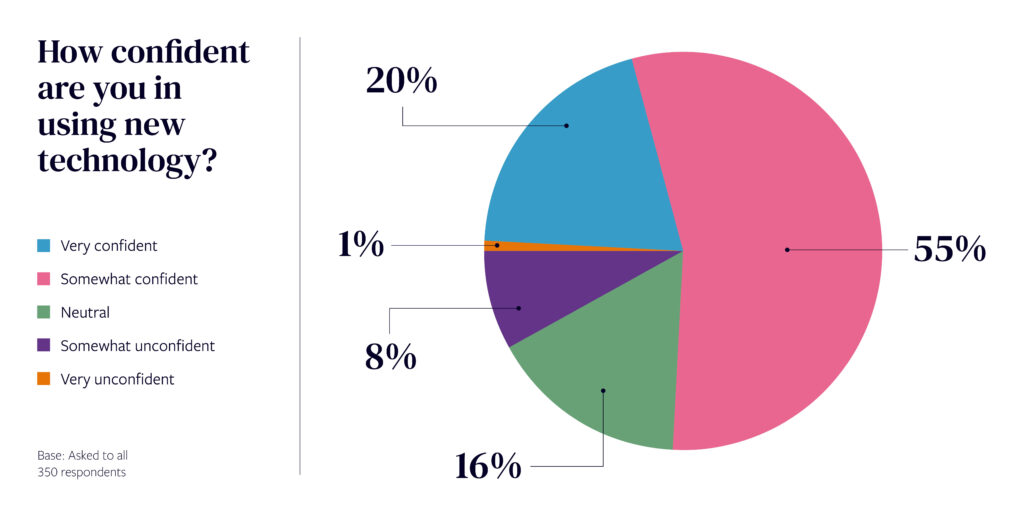
Meeting the challenges
With these uncertainties shaping the workplace, it is perhaps no surprise that employee engagement (62%), team productivity (60%) and team development (58%) now rank highly as measures seen as defining successful leadership.
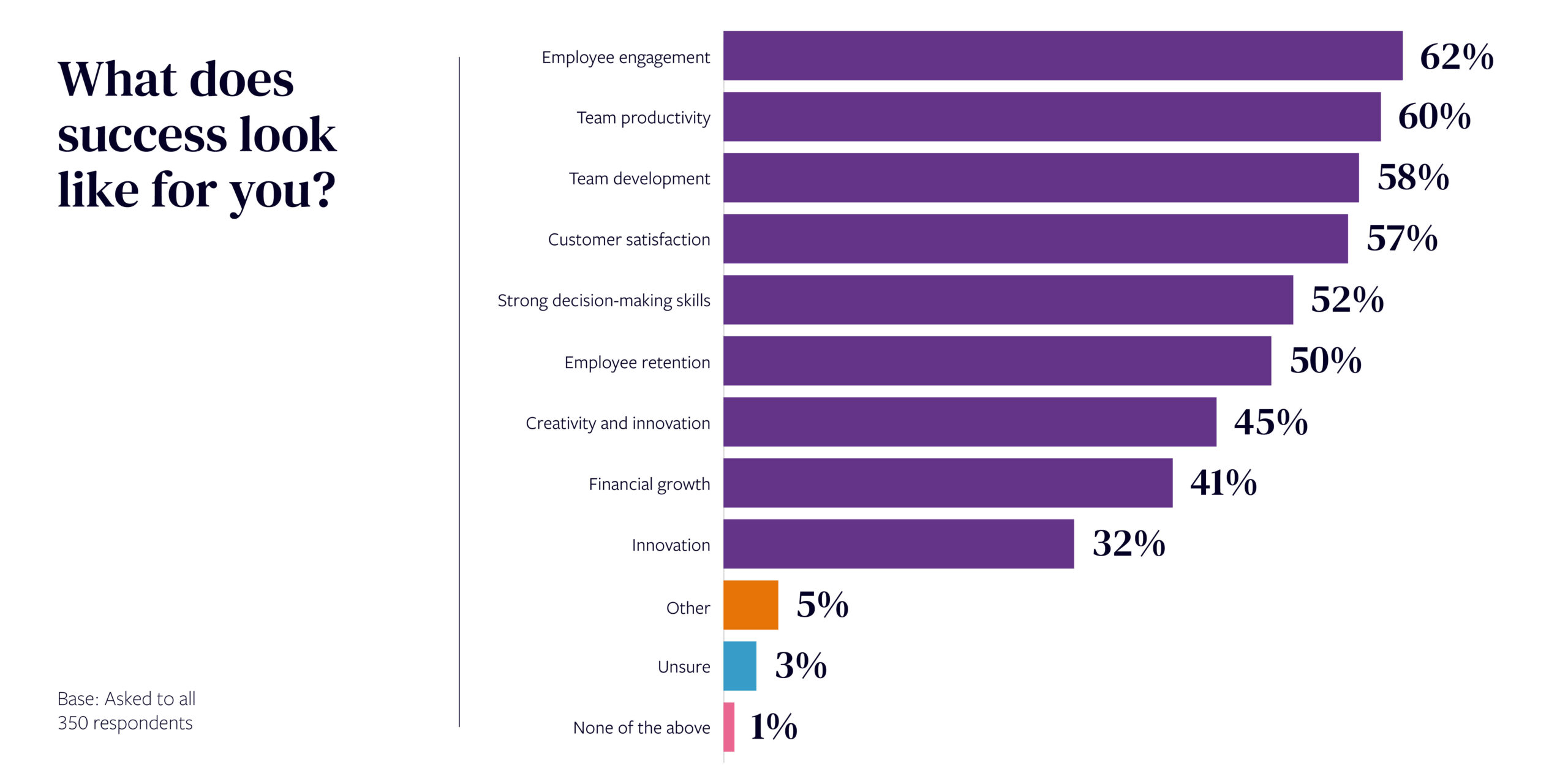
With the need to foreground the human aspects of business, the skills required to succeed as a leader are also perhaps evolving – or at least shifting in their relative importance.
In our survey, ‘self-reflection and improvement’ is now the value quoted as being the most important in informing leaders’ decisions (79%). This is followed closely by ‘ethical decision making’ (76%) and authentic leadership (75%). As one respondent commented, “Having the ability and time to reflect continually on what’s working well (and what isn’t) … is what’s important.”
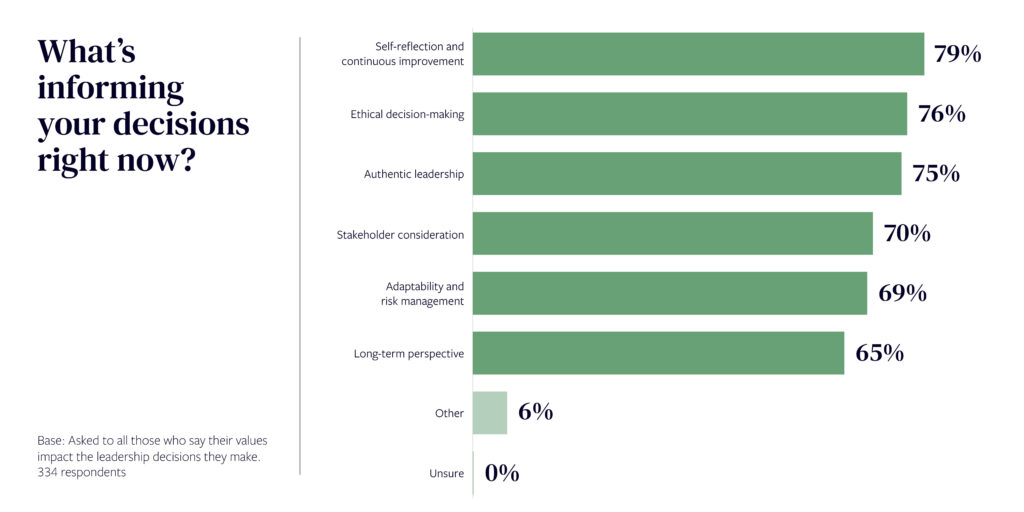
When looked at as a whole, our research shows that adaptability, people management and digital literacy are now the top leadership capabilities for the future.
John Mark Williams, CEO of the Institute of Leadership, said of the survey:
“Our research is a barometer of leadership and the challenges we face as leaders today. Change has always impacted what we do and it’s no surprise, in these most uncertain of times, that it’s still the case. What I find most encouraging from the findings is that our leadership community understands that whether we face economic, social or technological challenges, it is people that remain at the centre of everything we do. As leaders, we must find time to listen to and support them. And we need to find time for ourselves, and support each other too.”
The full research findings will be published in the Autumn issue of EDGE and will also be available on the Edge digital hub from the end of September.





